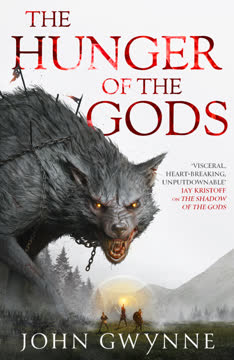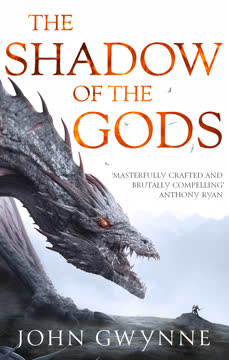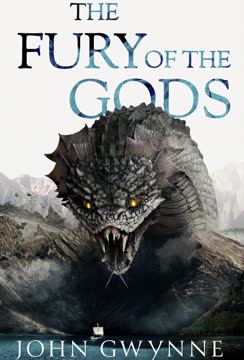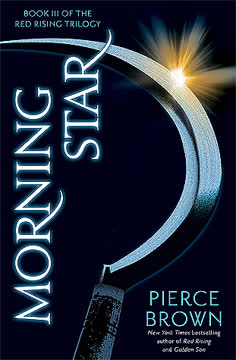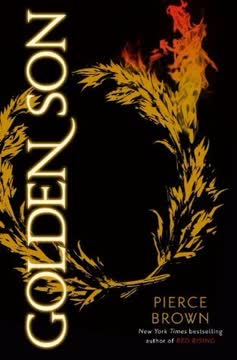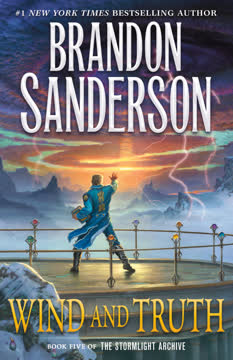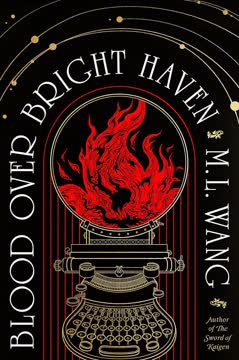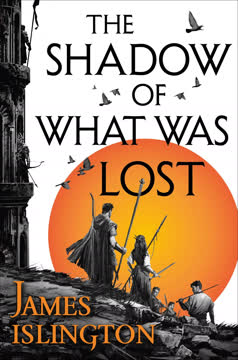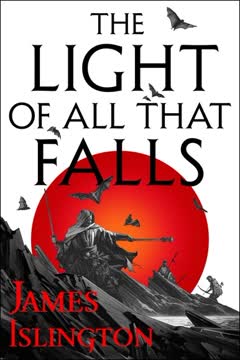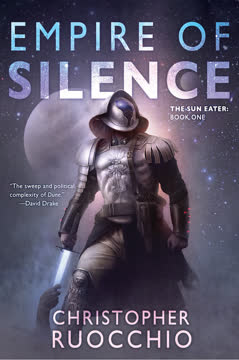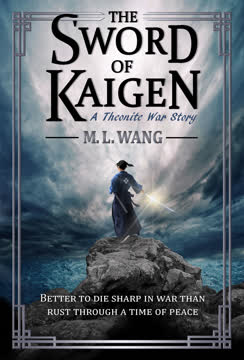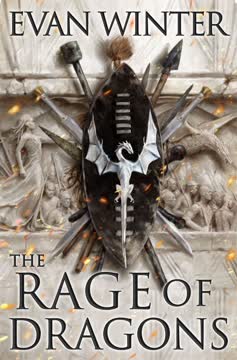Plot Summary
Blood Oaths and Betrayals
In the aftermath of personal tragedy, Orka, a fierce warrior and mother, is driven by the abduction of her son, Breca, and the murder of her husband. Her quest for vengeance and rescue is mirrored by others: Varg, a former thrall, seeks justice for his sister's death, and Elvar, a mercenary, chases glory and purpose. Each is bound by blood oaths—magical and personal—that demand loyalty and action, even as betrayals within their ranks threaten to unravel everything. The world of Vigrið is harsh, where oaths are more than words; they are living things that punish the oathbreaker and bind the fates of all who swear them. The story's emotional core is the pain of loss, the drive for justice, and the cost of trust in a world where loyalty is both weapon and curse.
Gods Unleashed, Fates Entwined
The world's balance is shattered as Lik-Rifa, the dragon-god, is released from her prison beneath Oskutreð by the machinations of the Tainted—those with god-blood in their veins. Her freedom is not just a return of a mythic terror, but a catalyst for the resurgence of all the old powers and hatreds. The gods, long thought dead or dormant, begin to stir, and their descendants—Tainted, thralls, and mortals—are swept up in a tide of destiny. The fates of Orka, Varg, and Elvar become inextricably linked to the gods' hunger and the world's unraveling, as each must confront the legacy of blood and the consequences of awakening forces beyond mortal control.
The Wolf's Vengeance
Orka's journey is one of relentless pursuit, driven by the primal force of a mother's love and the wolf-god's blood in her veins. Her transformation from grieving wife to Skullsplitter, a legendary warrior, is marked by violence and sacrifice. She carves a bloody path through enemies and obstacles, her rage both a weapon and a curse. Along the way, she forges uneasy alliances and faces the truth of her own Tainted nature. The emotional weight of her quest is the tension between vengeance and hope, as she refuses to let grief consume her, channeling it instead into a singular, unstoppable purpose: to reclaim her son and punish those who wronged her.
Oaths Carved in Flesh
Elvar and her companions, the Battle-Grim, are ensnared by a magical blood oath to rescue a child, Bjarn, from the clutches of the dragon-born. The oath is more than a promise—it is a living curse that punishes doubt and compels action. As the Battle-Grim journey through haunted lands and face monstrous foes, the oath's power tests their resolve and unity. Betrayal from within, especially by Biórr, who reveals himself as a traitor, fractures the group and leaves them vulnerable. The emotional toll is immense, as loyalty is tested, pain is inflicted, and the cost of breaking or keeping an oath becomes a matter of life and death.
The Dragon's Awakening
The release of Lik-Rifa, the dragon-god, is a cataclysmic event that reshapes the world. Her emergence from Oskutreð is marked by violence, the death of guardians, and the unleashing of ancient magic. The dragon's hunger is not just for flesh, but for power, vengeance, and the restoration of her kind's dominion. Her followers, the Raven-Feeders and the Tainted, rally to her cause, believing in a new order where the Tainted are no longer hunted but rule. The emotional impact is awe and terror, as mortals and gods alike must reckon with the return of a force that cannot be reasoned with or contained.
Tainted and Thralled
The Tainted—descendants of gods—are both feared and enslaved, their power coveted and controlled by thrall-collars forged from the chains of dead gods. Varg's discovery of his own Tainted nature, and the revelation that the Bloodsworn are all Tainted, upends his understanding of self and loyalty. The world's hierarchy is built on the subjugation of the powerful, and the struggle for freedom is both personal and collective. The emotional resonance is the pain of being othered, the longing for acceptance, and the rage against a system that punishes difference. The Tainted's journey is one of reclaiming agency and forging new identities in the face of oppression.
The Gathering Storm
As the gods' hunger grows, mortals and Tainted alike gather their strength. Warbands form, alliances are forged and broken, and the land is swept by rumors of dragons and ancient magic. Orka, Elvar, and Varg each gather companions—some loyal, some treacherous—as they prepare for the coming storm. The emotional landscape is one of anticipation, fear, and determination, as each character must decide whom to trust and what they are willing to sacrifice. The world teeters on the edge of chaos, and every choice carries the weight of destiny.
The Price of Loyalty
Loyalty is a double-edged sword, bringing both salvation and ruin. Biórr's betrayal of the Battle-Grim, driven by his allegiance to the Raven-Feeders, is a wound that festers. Orka's refusal to abandon her companions, even at great personal risk, is both her strength and her vulnerability. The Bloodsworn's code binds them together, but also demands terrible sacrifices. The emotional core is the pain of betrayal, the cost of keeping faith, and the realization that loyalty often demands more than one can bear. In a world where trust is rare, every act of loyalty is an act of courage—and sometimes, of folly.
Shadows Over Oskutreð
Oskutreð, the site of the gods' fall, is both a graveyard and a crucible. The Battle-Grim's journey there is marked by encounters with spirits, vaesen, and the lingering power of the dead gods. The land itself is haunted, and the treasures buried there are as much curse as blessing. The emotional atmosphere is one of awe, dread, and revelation, as the characters confront the truth of their world's history and the price of meddling with forces beyond comprehension. The past is never truly dead, and the shadows of Oskutreð reach into every heart.
The Children of Power
The abduction of Tainted children, including Breca and Bjarn, is a central crime that drives the narrative. These children are both victims and keys to the unfolding catastrophe, their blood needed for rituals that unleash the gods. The emotional stakes are highest for the parents—Orka and Uspa—whose love and desperation fuel their quests. The children's own journeys, marked by fear, resilience, and the awakening of their powers, mirror the larger struggle for agency and survival. The world's future is written in the fates of its children, and their rescue or loss will determine the shape of things to come.
The March of Monsters
Lik-Rifa's call summons not only her Tainted followers but all the monstrous vaesen she created. Trolls, frost-spiders, tennúr, and other creatures answer her summons, forming an army unlike any the world has seen. The march of monsters is both literal and symbolic—a rising of the oppressed, the outcast, and the feared. The emotional impact is a blend of horror and exhilaration, as the boundaries between human and monster blur, and the world is forced to reckon with the consequences of its own cruelty. The coming war is not just between mortals, but between the old world and the new.
The Siege of Svelgarth
The first great clash of the new age comes at Svelgarth, where Lik-Rifa's monstrous host besieges the fortress. The defenders, outnumbered and outmatched, fight with desperation and courage. Orka and her companions use the chaos to attempt a daring rescue of Breca and Bjarn, risking everything for love and loyalty. The emotional intensity is at its peak—fear, hope, and the raw will to survive drive every action. The siege is a crucible that tests every character, forging new bonds and breaking old ones, as the world is remade in fire and blood.
The Fall of Darl
In Darl, political intrigue and open violence collide as Queen Helka's ambitions are challenged by the resurrection of Orna, the eagle-god, and the arrival of Lik-Rifa. Betrayals within the court, the uprising of the Tainted, and the clash of gods bring the city to ruin. Guðvarr, ever the survivor, navigates the chaos with cunning, while others pay the ultimate price for ambition and treachery. The emotional landscape is one of shock, loss, and the realization that no power is secure in a world where gods walk again. The fall of Darl is both an ending and a beginning, as new rulers and new orders rise from the ashes.
The Eagle and the Dragon
The resurrected Orna and the unleashed Lik-Rifa meet in a cataclysmic battle above Darl, their conflict shaking the world. The clash of gods is both spectacle and apocalypse, a reminder of the insignificance of mortals in the face of divine wrath. Yet, it is the choices of mortals—acts of courage, betrayal, and love—that shape the outcome. The emotional resonance is awe, terror, and a strange hope, as the world witnesses the dawn of a new age and the end of the old. The gods' hunger is insatiable, but it is the hunger of mortals—for justice, freedom, and meaning—that endures.
The Last Shield Wall
As the gods and their armies clash, the last defenders form shield walls—literal and metaphorical—against the tide of chaos. Elvar, now a jarl, leads her people in a desperate bid for survival and purpose. Orka, wounded but unbroken, fights to keep her son safe. Varg and the Bloodsworn pursue vengeance and justice across sea and land. The emotional core is the refusal to surrender, the courage to stand when all seems lost, and the knowledge that every stand, no matter how doomed, matters. The last shield wall is a testament to the indomitable will of those who refuse to be broken.
The Cost of Freedom
The struggle for freedom—personal, collective, and cosmic—comes at a terrible price. The Tainted and their allies pay in blood and loss for every step towards liberation. Old bonds are broken, new ones forged, and the world is remade in suffering and hope. The emotional resonance is bittersweet: every victory is tinged with loss, every act of liberation with the memory of those who did not survive. Yet, the cost is borne willingly, for the alternative is unthinkable. Freedom is not given; it is taken, earned, and paid for in the coin of pain.
The Wolf Age Dawns
With the gods unleashed and the old order shattered, a new age begins—the Wolf Age, an era of chaos, opportunity, and transformation. The survivors—Orka, Elvar, Varg, and their companions—stand at the threshold of a world remade. The hunger of the gods is not sated, and the future is uncertain, but the will to endure, to fight, and to hope remains. The emotional tone is one of exhaustion and anticipation, as the characters look to the horizon, knowing that the hardest battles are yet to come. The Wolf Age is both a promise and a warning: the world belongs to those who dare to seize it.
The Hunger of the Gods
The story's culmination is a tapestry of desire—gods for worship and vengeance, mortals for justice and love, the Tainted for freedom and belonging. The hunger that drives every character is both curse and blessing, shaping destinies and forging new paths. The world is left changed, scarred, and alive with possibility. The emotional resolution is complex: triumph and loss, hope and fear, love and rage all coexist. The hunger of the gods is eternal, but so is the hunger of mortals to shape their own fate.
Characters
Orka Skullsplitter
Orka is the emotional and moral core of the story—a mother whose love and rage drive her to the edge of humanity and beyond. Once chief of the Bloodsworn, she is haunted by loss and fueled by vengeance after her husband's murder and her son's abduction. Her journey is both physical and psychological, as she confronts her own Tainted nature (descended from the wolf-god Ulfrir) and the violence it brings. Orka's relationships are defined by loyalty and betrayal, especially with her former comrades and the gods themselves. Her development is a study in grief, resilience, and the refusal to surrender, as she transforms from a grieving widow to a legendary force of nature, willing to pay any price for her child's safety.
Elvar Fire-Fist
Elvar is a young mercenary who seeks to carve her own name in a world that would define her by her birth. Driven by a hunger for battle-fame and independence from her powerful father, she becomes chief of the Battle-Grim through courage, cunning, and the weight of blood oaths. Her journey is marked by the tension between personal ambition and the demands of loyalty, as she is bound by magical oaths that test her will and her heart. Elvar's relationships—with her companions, her family, and the gods—are fraught with conflict and growth. She evolves from a seeker of glory to a leader who understands the true cost of power and the meaning of sacrifice.
Varg No-Sense
Varg's story is one of transformation—from a fugitive thrall, desperate for answers about his sister's death, to a member of the Bloodsworn and a discoverer of his own Tainted heritage. His journey is marked by pain, confusion, and the slow forging of identity and belonging. Varg's relationships are shaped by loss and the longing for family, both blood and chosen. His psychological arc is one of learning to control the wolf within, to channel rage into purpose, and to find meaning in loyalty and friendship. Varg's development is a testament to the power of resilience and the possibility of redemption, even for those most broken by the world.
Lik-Rifa
Lik-Rifa is the story's central antagonist and a force of nature—ancient, cunning, and insatiable. Her release from captivity is both a personal triumph and a world-shattering event, as she seeks to restore the dominion of the gods and punish those who have oppressed her children, the Tainted. Lik-Rifa's relationships are defined by manipulation and hunger, both literal and metaphorical. She is both mother and tyrant to her followers, inspiring awe, fear, and devotion. Psychologically, she embodies the destructive potential of unchecked power and the dangers of nostalgia for a lost golden age.
Ulfrir
Ulfrir, resurrected and bound by a thrall-collar, is a complex figure—both a symbol of primal power and a victim of the new order. His relationship with Orka is fraught with tension, as he seeks to reclaim his place in the world and in her life. Ulfrir's psychological arc is one of adaptation and resentment, as he struggles with the loss of autonomy and the demands of loyalty. He is both a weapon and a warning, embodying the dangers of resurrecting the past and the unpredictable consequences of meddling with divine forces.
Biórr
Biórr is a study in divided loyalties and the pain of betrayal. A Tainted with the blood of Rotta the rat-god, he infiltrates the Battle-Grim, betrays them, and returns to the Raven-Feeders. His actions are driven by a desire for acceptance and a belief in the Tainted's cause, but he is haunted by guilt and the consequences of his choices. Biórr's relationships—with Elvar, his former lover, and his new comrades—are marked by regret and longing. His psychological journey is one of self-justification, denial, and the slow realization of the cost of betrayal.
Uspa
Uspa is a powerful magic-user whose actions set much of the plot in motion. Her desperate quest to rescue her son, Bjarn, leads her to bind others in blood oaths and to make dangerous bargains. Uspa's relationships are defined by love, manipulation, and sacrifice. Psychologically, she is both victim and agent, using her power to protect her family but also causing pain to others. Her development is a meditation on the limits of love and the dangers of wielding power without regard for consequence.
Guðvarr
Guðvarr is a minor noble whose primary talent is survival. He navigates the shifting tides of power in Darl, aligning himself with whoever offers the best chance of survival. His relationships are transactional, and his psychological arc is one of self-preservation, cunning, and the slow erosion of conscience. Guðvarr's development is a darkly comic counterpoint to the heroism of others, a reminder that not all who survive are heroes.
Skalk
Skalk is a master of rune-magic and a key player in the political and magical intrigues of Darl. His relationships are defined by manipulation and ambition, as he seeks to control both people and gods. Psychologically, Skalk is a study in hubris and the dangers of unchecked ambition. His development is a cautionary tale about the costs of seeking power at any price.
Lik-Rifa's Tainted Offspring (Ilska, Drekr, Myrk)
Ilska, Drekr, and Myrk are the dragon-born, Tainted with Lik-Rifa's blood, and serve as her champions and enforcers. Their relationships—with each other, with their mother, and with their followers—are marked by rivalry, loyalty, and violence. Psychologically, they are shaped by the trauma of oppression and the intoxicating promise of power. Their development is a microcosm of the larger struggle between old and new, order and chaos, love and hate.
Plot Devices
Blood Oaths and Magical Binding
The narrative is driven by the concept of blood oaths—magical promises that bind the will and punish the oathbreaker with pain or death. These oaths are not mere words but living entities, shaping the actions and fates of those who swear them. The device serves to heighten tension, enforce loyalty, and create moral dilemmas, as characters are forced to choose between personal desire and the demands of the oath. The blood oath is both a plot engine and a symbol of the story's central themes: the cost of loyalty, the power of words, and the inescapability of fate.
Resurrection and the Return of the Gods
The resurrection of gods—Lik-Rifa, Ulfrir, Orna—serves as both catalyst and climax. The process is fraught with danger, requiring rare magic, blood, and sacrifice. The return of the gods is not a restoration of order but a disruption, unleashing chaos and forcing mortals to confront the consequences of their own hubris. This device allows for epic confrontations, the reordering of power, and the exploration of themes of nostalgia, change, and the dangers of longing for a lost golden age.
Tainted Blood and Identity
The concept of the Tainted—those with god-blood—drives much of the plot and character development. Tainted blood is both a source of power and a mark of oppression, shaping identity, destiny, and social order. The device allows for exploration of themes of otherness, belonging, and the struggle for agency. It also serves as a metaphor for the burdens and gifts of heritage, and the ways in which the past shapes the present.
Betrayal and Shifting Alliances
Betrayal is a constant threat, as characters navigate a world where loyalty is rare and survival often demands hard choices. The device of shifting alliances creates tension, surprise, and moral complexity, as characters must decide whom to trust and what they are willing to sacrifice. Betrayal is both a plot engine and a thematic exploration of the costs of ambition, the pain of loss, and the difficulty of forging true bonds in a broken world.
Warbands and the Shield Wall
The formation and dissolution of warbands—the Battle-Grim, the Bloodsworn, the Raven-Feeders—serves as both setting and metaphor. The shield wall is a literal and symbolic device, representing the strength of community, the necessity of cooperation, and the inevitability of conflict. The device allows for epic battles, the testing of character, and the exploration of themes of loyalty, sacrifice, and the meaning of home.
The March of Monsters
The summoning of vaesen and monsters by Lik-Rifa is both a plot device and a thematic statement. The march of monsters is a rising of the oppressed, a challenge to the old order, and a blurring of the boundaries between human and monster. The device allows for spectacle, horror, and the exploration of themes of otherness, justice, and the dangers of dehumanization.
Foreshadowing and Prophecy
The narrative is laced with foreshadowing—dreams, omens, and prophecies that hint at future catastrophe and possibility. These devices create tension, anticipation, and a sense of inevitability, while also allowing for surprise and reversal. Prophecy is both a plot engine and a meditation on fate, free will, and the power of belief.
Analysis
John Gwynne's The Hunger of the Gods is a sweeping, Norse-inspired epic that explores the collision of ancient power and mortal ambition. At its heart, the novel is a meditation on the costs of loyalty, the hunger for justice, and the dangers of nostalgia for a lost golden age. The return of the gods is not a restoration but a disruption, forcing mortals and Tainted alike to confront the consequences of their own choices and the legacies of oppression. The story's emotional power lies in its characters—Orka's relentless love, Elvar's quest for meaning, Varg's search for belonging—and in its refusal to offer easy answers. Freedom is hard-won, and every victory is tinged with loss. The novel's lessons are clear: power is never secure, the past cannot be reclaimed without cost, and the true measure of heroism is not in victory, but in the willingness to stand, to hope, and to endure. In a world where gods hunger and mortals bleed, it is the courage to choose, to love, and to fight for a better future that endures.
Last updated:
Review Summary
The Hunger of the Gods receives overwhelmingly positive reviews, with readers praising its immersive world-building, complex characters, and thrilling battle scenes. Many consider it an improvement over the first book, with expanded perspectives and deeper exploration of Norse mythology. Orka remains a fan-favorite character, while new additions like Gudvarr add depth to the narrative. Reviewers appreciate Gwynne's atmospheric prose and ability to craft morally gray characters. The book's ending leaves readers eagerly anticipating the final installment in the trilogy.
